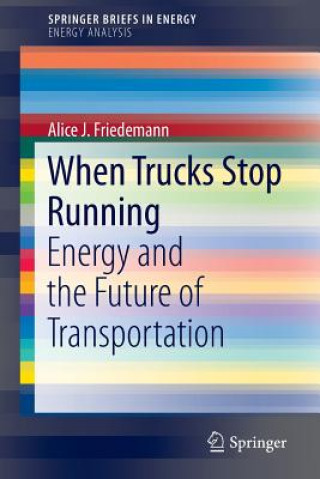
Delivery
Shopping guide





Doesn't suit? No problem! You can return within 30 days
 Gift voucher
any value
Gift voucher
any value
You won't go wrong with a gift voucher. The gift recipient can choose anything from our offer.
When Trucks Stop Running
 English
English
 212 b
212 b
30-day return policy
You might also be interested in


In lively and engaging language, this book describes our dependence on freight transport and its vulnerability to diminishing supplies and high prices of oil. Ships, trucks, and trains are the backbone of civilization, hauling the goods that fulfill our every need and desire. Their powerful, highly-efficient diesel combustion engines are exquisitely fine-tuned to burn petroleum-based diesel fuel. These engines and the fuels that fire them have been among the most transformative yet disruptive technologies on the planet. Although this transportation revolution has allowed many of us to fill our homes with global goods even a past emperor would envy, our era of abundance, and the freight transport system in particular, is predicated on the affordability and high energy density of a single fuel, oil. This book explores alternatives to this finite resource including other liquid fuels, truck and locomotive batteries and utility-scale energy storage technology, and various forms of renewable electricity to support electrified transport.§Transportation also must adapt to other challenges: Threats from climate change, financial busts, supply-chain failure, and transportation infrastructure decay. Robert Hirsch, who wrote the "Peaking of World Oil Production" report for the U.S. Department of Energy in 2005, said that planning for peak world production must start at least 10, if not 20 years ahead of time. What little planning exists focuses mainly on how to accommodate 30 percent more economic growth while averting climate change, ignoring the possibility that we are at, or near, the end of growth.§Taken for granted, the modern transportation system will not endure forever. The time is now to take a realistic and critical look at the choices ahead, and how the future of transportation may unfold.
About the book
 English
English
Categories




 How to shop
How to shop























